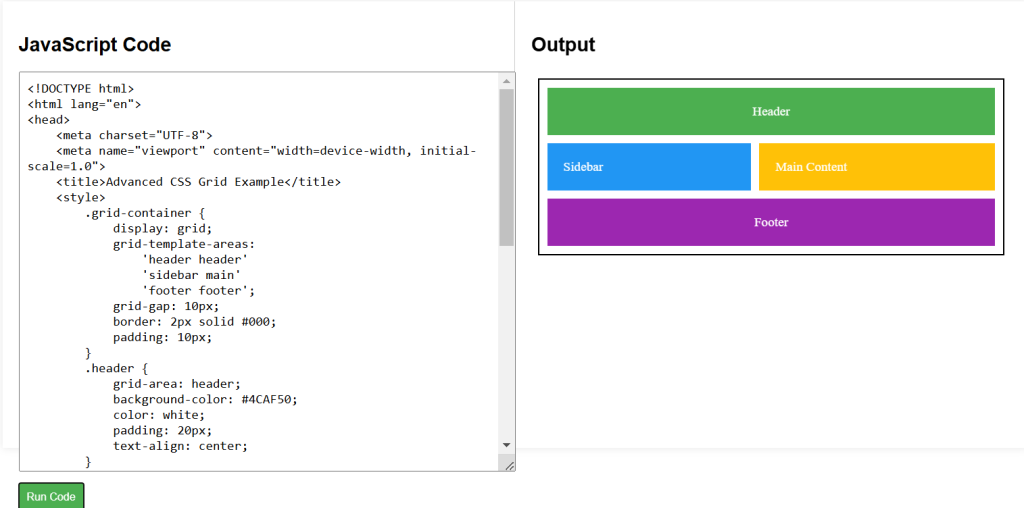Defining Grid Areas
The grid-template-areas property allows you to name specific areas of your grid and place items accordingly. This method makes you grid layout more readable and easier to manage.
- Setting Up Grid Areas:
In this example, we’ve defined a layout with areas for a header, sidebar, main cotent, and footer.
.grid-container {
display: grid;
grid-template-areas:
'header header'
'sidebar main'
'footer footer';
grid-gap: 10px;
}
.header {
grid-area: header;
}
.sidebar {
grid-area: sidebar;
}
.main {
grid-area: main;
}
.footer {
grid-area: footer;
}Spanning Rows and Columns
Sometimes, you need elements to span multiple rows or columns. You can achieve this using the grid-column and grid-row properties.
- Spanning Multiple Rows/Columns:
.grid-item {
grid-column: 1 / span 2; /* Spans 2 columns */
grid-row: 1 / span 2; /* Spans 2 rows */
}CSS Grid (Part 2 ) Example Code
<!DOCTYPE html>
<html lang="en">
<head>
<meta charset="UTF-8">
<meta name="viewport" content="width=device-width, initial-scale=1.0">
<title>Advanced CSS Grid Example</title>
<style>
.grid-container {
display: grid;
grid-template-areas:
'header header'
'sidebar main'
'footer footer';
grid-gap: 10px;
border: 2px solid #000;
padding: 10px;
}
.header {
grid-area: header;
background-color: #4CAF50;
color: white;
padding: 20px;
text-align: center;
}
.sidebar {
grid-area: sidebar;
background-color: #2196F3;
color: white;
padding: 20px;
}
.main {
grid-area: main;
background-color: #FFC107;
color: white;
padding: 20px;
}
.footer {
grid-area: footer;
background-color: #9C27B0;
color: white;
padding: 20px;
text-align: center;
}
</style>
</head>
<body>
<div class="grid-container">
<div class="header">Header</div>
<div class="sidebar">Sidebar</div>
<div class="main">Main Content</div>
<div class="footer">Footer</div>
</div>
</body>
</html>


